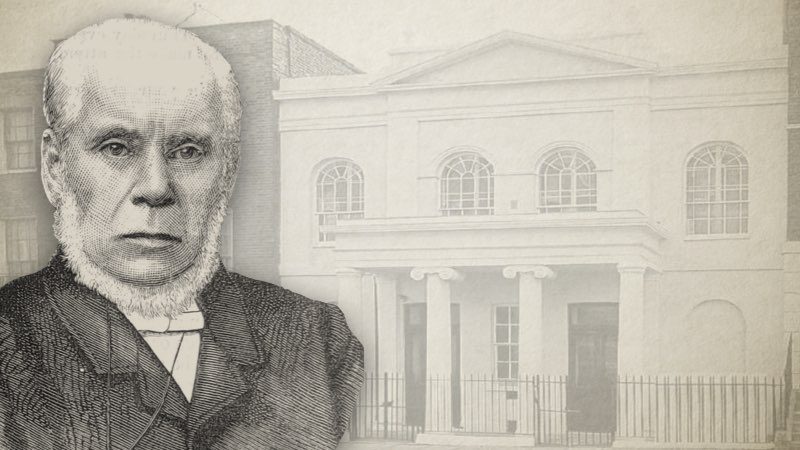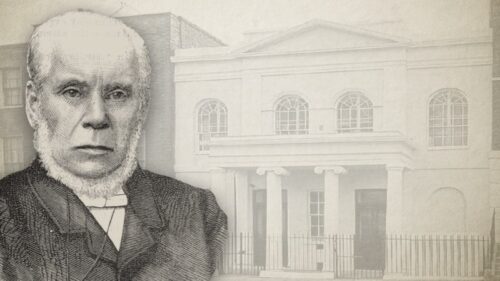William Styles
William Styles (1842-1914) was a Strict and Particular Baptist preacher. He served as pastor for the churches meeting at High Wycomb (2 years); Lower Holloway (3 years); Providence, Islington; Keppel Street (10 years); West Ham (4 years); West Hill, Wandsworth (6 years). After his conversion to Christ while sitting under the ministry of the Congregationalists, he was baptized by C. H. Spurgeon and became a member of the Metropolitan Tabernacle. During this time, he enrolled in the Pastors’ School. He eventually embraced high views of sovereign grace and strict communion principles, thereby leading him to join the Strict and Particular Baptist denomination. He was an outspoken opponent of the pernicious teachings of duty-faith and the free-offer, believing that no church, minister or member had a right to identify as “Strict and Particular Baptists” if holding to those errors. He took a leading role in the Metropolitan Association of Strict Baptist Churches and was a supporter of the Strict Baptist Mission. Both of these organizations now embrace the errors of duty-faith and the free-offer, standing opposed to the faith and order of the Strict and Particular Baptists.
William Styles, A Guide To Church Fellowship (Complete)
William Styles, A Memoir of John Hazelton (Complete)
-
A Biography of John Hazelton, by William Styles (Complete), William Styles, A Memoir Of John Hazelton (Complete)
Chapter 13
ANALYTICAL.—THE PREACHER. I would describe him simple, grave, sincere, In doctrine uncorrupt; in language plain, And plain in manner; decent, solemn, chaste, And natural in gesture; much impressed Himself, as conscious of his awful charge. And anxious mainly that the flock he feeds May feel it too; affectionate in look, And tender in address, as well becomes A messenger of grace to guilty men.—Cowper. Nothing was further from the character of John Hazelton than the common ambition to figure as "an all-round man." He had thoughts on politics, and deemed it right for a Christian to vote according to his convictions, but he attended no meetings that were not distinctly religious or philanthropical, and he was always silent in public on the questions of the…
-
A Biography of John Hazelton, by William Styles (Complete), William Styles, A Memoir Of John Hazelton (Complete)
Chapter 14
"Pray for the peace of Jerusalem; they shall prosper that love thee, peace be within thy walls, and prosperity within thy palaces. For my brethren and companions' sakes, I will now say, peace be within thee, because of the house of the Lord our God, I will seek thy good."—Psalm 122:6-9 John Hazelton was as remote from the spurious catholicity which acknowledges and receives all professed Christians without inquiry into their faith and practice, as he was free from the bitter sectarianism which cannot acknowledge the existence of spiritual good without the pale of its own communion. He nevertheless at all times manifested a denominational spirit. He loved his own section of the Church with profound affection, identified himself with it with unconcealed satisfaction, rejoiced…
-
A Biography of John Hazelton, by William Styles (Complete), William Styles, A Memoir Of John Hazelton (Complete)
Chapter 15
How fine has the day been! How bright was the sun! How lovely and joyous the course that he run! Though he rose in a mist when his race he begun, And there followed some droppings of rain: But now the fair traveller conies to the west, His rays are all gold, and his beauties are best; He paints the sky gay, as he sinks to his rest, And foretells a bright rising again. Just such is the Christian. His course he begins Like the sun in a mist, while he mourns for his sins, And melts into tears; then ho breaks out and shines, And travels his heavenly way: But when he comes nearer to finish his race, Like a fine setting sun, he…


